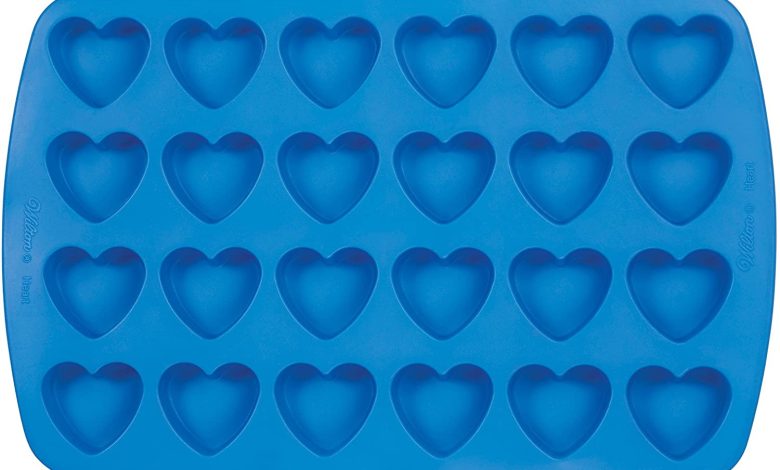Are silicone molds expensive?

Are silicone molds expensive?
Are silicone molds expensive? This is a question that comes up a lot, especially among new cake decorators. The answer, of course, is it depends. There are a lot of factors to consider when it comes to custom silicone molds, such as the size and shape of the mold, the brand, and the quality.
That being said, there are some general rules of thumb that can help you get an idea of how much silicone molds cost. In this article, we’ll take a look at some of the things you need to keep in mind when purchasing silicone molds, and then we’ll give you an idea of what you can expect to pay for different types of molds.
So, are silicone molds expensive? Let’s find out. There’s a lot of confusion about silicone molds and whether they’re worth the investment. In this article, we’ll take a look at the pros and cons of custom silicone molds and help you decide if they’re the right choice for your business.
Pros of Silicone Molds
- They’re antibacterial and heat-resistant, making them a safe choice for food-related projects.
- They’re flexible, so they can be used for a variety of shapes and sizes.
- They last a long time, making them a wise investment.
How much does a silicone mold cost?
When it comes to silicone mold making, there are a lot of factors that go into the cost of a mold. In this article, we’re going to break down some of those factors so you have a good understanding of what goes into the cost of a silicone mold.
Mold Material
The most common type of material for making molds is silicone. Silicone is durable, flexible, and heat resistant, making it the perfect option for casting a wide variety of materials. The cost of a silicone mold will vary depending on the grade and quality of silicone you choose.
Mold Design
The complexity and design of your mold will also affect the cost. If your mold requires detailed or intricate details, the cost will be higher than a simpler mold.
Mold Production
The production process of your mold will also affect the final price. There are two methods of producing custom silicone molds: injection molding and hand layering. Injection molding is a process in which a mold is created at a low temperature. The temperature is then raised, which allows the mold to be released. Hand layering is the opposite process. Silicone is heated, and then placed over a mold to create a mold. The mold is then cooled, and the silicone is removed.
The production process for your mold will also affect the price.
Mold Size
The size of your mold will also affect the price. The larger the mold, the more expensive it will be.
The perfect silicone mold for you
There are a lot of factors that affect the price of silicone molds, and choosing the right mold for your business can be tricky. The price of a silicone mold can vary greatly depending on the mold size, design, material, and production process.
How do you know which mold is right for you? In this article, we’ll help you understand the different types of silicone molds, the pros and cons of each, and the things to keep in mind when choosing one.
Why is molding silicone so expensive?
Molding silicone is expensive because it is a high-quality material that offers many benefits. It is durable, flexible, and heat resistant, making it perfect for a variety of applications. There are two forms of silicone molding: hand layering and injection molding. This article will discuss the pros and cons of each.
Hand laying silicone molds are a classic method of creating mold for a variety of reasons. It is a low-cost, simple process that is great for creating large molds. Hand layering also allows you to create a mold from a variety of materials, like wood, plaster, acrylic, and silicone.
Injection molding is a more complex and expensive process. It is best used for creating small molds that require a lot of detail, such as molds for small ornaments. Injection molding allows for more control over the mold’s design because it allows the mold to be created at a high temperature and cooled at a lower temperature.
How to choose a silicone mold
There are a lot of factors that can affect the cost of silicone molds. It is important to think about these factors before you choose a mold for your business. In this article, we’ll discuss the different types of silicone molds and the pros and cons of each.
Which silicone mold is best for you?
In this article, we’ll discuss the different types of silicone molds and the pros and cons of each.
Silicone molding methods
Silicone molds can be created in a variety of ways. The most common methods of molding silicone are injection molding and hand layering.
Hand layering
Hand layering is a classic molding method for a variety of reasons. It is a low-cost, simple process that is great for creating large molds. Hand layering also allows you to create a mold from a variety of materials, like wood, plaster, acrylic, and silicone.
Injection molding
Injection molding is a more complex and expensive process. It is best used for creating small molds that require a lot of detail, like molds for small ornaments.
What kind of mold do you use for silicone?
A few weeks ago, I decided that it was time to start some home repairs. I wasn’t sure exactly what I needed to do, but I knew that I wanted to replace the caulking in my shower and fix a few cracks in the walls.
I headed to the hardware store, and after browsing through the aisles for a while, I found the molding silicone that I needed. But when I went to check out, I was surprised by the price. Why was molding silicone so expensive?
It turns out that there are a lot of factors that go into the price of molding silicone. In this article, we’ll take a look at some of the reasons why it’s so expensive and see if there is anything that we can do to reduce the cost.
What material is best for molds?
Injection molding is a process for manufacturing parts by injecting molten material into a mold. The injected material cools and hardens to the shape of the mold cavity. Many different materials can be used in injection molding, including metals, alloys, plastics, rubber, and foams.
Choosing the right material for your molds is important for the quality and efficiency of your injection molding process. In this article, we’ll discuss the most common mold materials and their pros and cons.
Metal Molds
Metal molds are made from steel, aluminum, brass, or copper. They are durable and can withstand high temperatures, making them ideal for molding thermoplastic materials.
However, metal molds are expensive to produce and require regular maintenance. They also have a shorter lifespan than plastic molds.
Plastic Molds
Plastic molds are used to produce a wide variety of products, including plastic food containers, plastic toys, and plastic dishes. They are durable and can withstand high temperature and pressure. They are also affordable to produce and maintain.
However, plastic molds can only be used to create products with a certain thickness, which means that you need to choose a mold size that fits your product.
Polymer Molds
Polymer molds are made from polymers, like ABS, PVC, polypropylene, and Teflon. They can be used to manufacture a variety of products, like toys, clothing, and household items.
Polymer molds are inexpensive, durable, and have a longer lifespan than metal or plastic molds. They are also easier to clean and maintain. They can also be used to manufacture a wide variety of products, making them ideal for a variety of applications.
How do you check the quality of your mold?
To make sure that you are getting a high-quality mold for your business, it is important to know how to check the quality of your mold. In this article, we’ll discuss the different ways that you can check the quality of your mold.
Mold inspection
Mold inspection is a simple way of checking the quality of your mold. Simply look at the mold’s exterior. Are there any marks or stains? Do the edges look smooth and polished? Do the molds fit together tightly?
Mold testing
Mold testing is a more detailed way of checking the quality of your mold.





